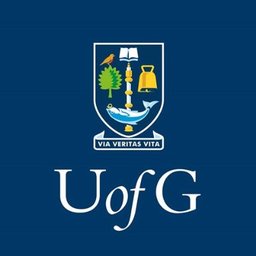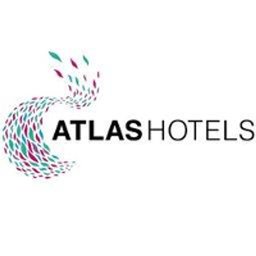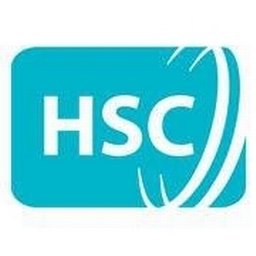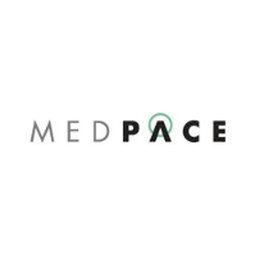Job Opportunities in United Kingdom

September 20, 2024
University of Glasgow
Glasgow
FULL TIME & OTHER
Clinical Research Fellow in Anaesthesia and Critical Care
Job Purpose
The Clinical Research Fellow will undertake agreed research and educational activities to develop new techniques to improve patient care. The post is approximately 50% research and 50% clinical and will initially be for 12 months but may be mutually extended for up to a further two years. The Academic Unit of Anaesthesia, Critical Care and Perioperative Medicine exists to promote the education of undergraduate and postgraduate students in anaesthesia, intensive care and perioperative medicine, and to lead the development of new techniques to improve patient care in these areas.
Clinical Duties will be undertaken under an honorary contract with the relevant NHS Organisation at an appropriate trainee level.
In general, these posts are designed to facilitate the completion of an MD/Ph D but this is not mandatory. Further, should a candidate wish, time can be made available within the fellowship to undertake a certificate/diploma/masters in medical education (for example).
Main Duties and Responsibilities
Research Tasks
- Plan, design and implement projects or parts of projects, in conjunction with collaborators as appropriate.
- Write and submit applications for funding and Ethics and Research Management approval, as appropriate and in conjunction with principal investigators.
- Manage data handling and interpretation of research results and take the lead in writing papers for publication in appropriate peer-reviewed journals.
- Collaborate with colleagues and participate in team meetings/discussions and departmental research group activities.
- As part of a team of ‘local investigators’, recruit patients to a portfolio of ongoing multicentre studies within the clinical site where applicable.
- Present work at internal and external seminars and national and international conferences to enhance the profile of the research group.
- Contribute to the organisation of project-related workshops, seminars or conferences.
- The Research Fellow will be expected to take part in the Academic activities of the Academic Unit of Anaesthesia, Pain & Critical Care Medicine. These include, undergraduate teaching and research. The Research Fellows are expected to attend and present at a regular Journal Club and Research meetings.
Teaching
- Supervising clinical skills sessions/assisting with Acute Care days for 2nd, 3rd, 4th & final year MBCh B & Dental students.
- Contributing to the Critical Care and Perioperative Medicine BSc courses.
- Delivering teaching on the West of Scotland primary FRCA course.
- Following appropriate training, acting as an OSCE examiner for medical students at all stages of the MBCh B course.
Clinical Duties may be undertaken at a number of sites within the West of Scotland. In general, fellows can expect to rotate between at least two of these sites during a two-year fellowship:
Royal Alexandra Hospital, Paisley
- Both on-call and full shifts for theatre, Obstetrics and ICU as required in line with the currant 1A banding supplement.
- The banding supplement associated with this rota may change and will be in line with the European Working Time Regulations and the New Deal.
Golden Jubilee National Hospital, Clydebank
- Contributing to the Cardiothoracic Intensive Care on-call rota. This on-call rota is on average one 12-hours shift per week and two 12-hour shifts every five weekends plus prospective cover.
- Current banding is 1A, the banding supplement associated with this rota may be subject to change and will be in line with the European Working time Regulations and the New Deal.
Inverclyde Royal Infirmary, Greenock
- On-call for theatre and ICU as required in line with the current 1A banding supplement.
- The banding supplement associated with this rota may change and will be in line with the European Working Time Regulations and the New Deal.
Glasgow Royal Infirmary
- GRI will be able to accommodate applicants from a non-anaesthetic background (who may not be expected to rotate to all other sites) as long as the applicant has airway competencies.
- Clinical commitment will consist of ICU shifts for applicants from a non-anaesthetic background and ICU/general anaesthetic/obstetric days/shifts for applicants with an anaesthetic background.
- Average clinical hours/ week will be the equivalent of 7 x 12.5-13 hour shifts in a 4-week period.
- Banding for the ICU rota is 1A and for the general anaesthetic rota 2B. The banding supplements associated with these rotas may change and will be in line with the European Working Time Regulations and the New Deal.
Crosshouse University Hospital
- Crosshouse will be able to accommodate applicants from a non-anaesthetic training background (who would not be expected to rotate to all other sites) as long as the applicant has airway competencies.
- Clinical commitment will consist of ICU shifts for applicants from a non-anaesthetic background and ICU/general anaesthetic/obstetric days/shifts for applicants with an anaesthetic background.
- Average clinical hours/ week will be the equivalent of 7 x 12.5-13 hour shifts in a 4-week period.
- Banding for the rota is 1A.
Knowledge, Qualifications, Skills and Experience
Knowledge, Qualifications
Essential:
A1. Registrable medical degree (e.g. MBCh B).
A2. Registered by the GMC and holding a Licence to Practice.
For jobs at Royal Alexandra Hospital, Golden Jubilee National Hospital and Inverclyde Royal Infirmary:
A3. Equivalent of two years’ experience in Anaesthesia and / or Intensive Care Medicine
A4. Royal College of Anaesthetists certificate of completion of Core Anaesthetic Training (or equivalent)
A5. Primary Fellowship of the Royal College of Anaesthetists (FRCA) examination (or equivalent)
For jobs at Glasgow Royal Infirmary &Crosshouse Hospital:
A3. Completion of ACCS core training / core anaesthetic training or evidence of equivalence.
A4. Royal College of Anaesthetists Initial Assessment of Competence (IAC – or equivalent), and evidence of maintenance of airway skills.
A5. Primary part of MRCP/ MCEM / FRCA or equivalent.
Desirable:
B1. Motivation to commence research leading to a future higher degree.
B2. Additional specialist qualifications.
Experience
Essential:
C1. Evidence of satisfactory career progress.
C2. Evidence of relevant experience provided by personal log of work.
C3. Demonstrable evidence of interest in research.
Desirable:
D1. Evidence of participation in Audit / Research activities.
D2. Evidence of a planned or proposed, programme of research.
D3. Interest in and knowledge of the relevance of research.
D4. Additional specialist experience.
D5. Evidence of teaching experience.
D6. Evidence of administrative experience.
Skills
Essential:
E1. Ability to see projects through to completion.
E2. Evidence of organisational and communication skills (both written and oral).
E3. Leadership qualities.
E4. Able to relate well with patients and other members of the health care team.
E5. Knowledge and skills confirmed by summative assessment.
E6. Prepared to rotate as specified.
E7. Evidence of Hepatitis B immune status.
E8. Pre-employment health screening.
Desirable:
F1. Commitment to team working.
F2. Evidence of appropriate level of confidence i.e. able to work under pressure but understands limitations and when to seek help.
F3. Ability to prioritise when under pressure.
F4. Evidence of enthusiasm for teaching.
Terms & Conditions
Salary will be on the Clinical Research Fellow scale: £43,504 – £64,461 per annum
The post carries an additional entitlement depending on call responsibilities. This is paid under a separate arrangement with the NHS for which the University acts as paymaster only.
These posts are full time and fixed term for 12 months (with the potential to extend on mutual approval).
Although this activity constitutes part of the job, the management of the clinical activity will be the full responsibility of the NHS Organisation. In the unlikely event that the NHS Organisation withdraws the honorary contract, the University will not be able to continue this post and notice of termination will be served.
If you are currently in a Type 1 training post you must hold a National/Visiting Training number and have the agreement of your Postgraduate Dean to retain your original training number and to return to this post at the end of the appointment. This post is however also open to applicants not currently holding a National Training Number. Depending on the research project undertaken, planned clinical site or rotation through sites, some research fellows have agreed by application to the postgraduate Dean in collaboration with the Training Programme Director that part of their fellowship can be contributed towards training and it is up to RCA/postgraduate Dean to decide this. This post does not supply an NTN number. In the event that the appointee successfully registers to do a higher degree the University will not pay the fees, though as a member of University staff a discounted fee structure applies. The work may be carried out during or outside normal working time and no further support will be provided when the contract ends after one / two years.
The successful applicant (if aged under 60) will be eligible to join the Universities’ Superannuation Scheme. Further information regarding the scheme is available from the Superannuation Officer, who is also prepared to advise on questions relating to the transfer of Superannuation benefits. All research and related activities, including grants, donations, clinical trials, contract research, consultancy and commercialisation are required to be managed through the University’s relevant processes (e.g. contractual and financial), in accordance with the University Court’s policies.
Disclosure Scotland The post for which you are applying is considered to be a child care position in terms of The Protection of Children (Scotland) Act 2003. It requires the successful applicant to undergo a satisfactory Disclosure check through Disclosure Scotland prior to appointment. This check is necessary to ensure that the University of Glasgow fulfils its legal duties under the Act. If you are successful in your application, the offer of employment will be subject to a satisfactory Disclosure Report. The University will make a Disclosure application to Disclosure Scotland, which will reveal any past criminal convictions (spent or unspent) or inclusion on the Disqualified from Working with Children List. Any non-conviction information held locally by the police may also be disclosed should this be considered relevant to the position.
Please note it is a criminal offence to apply for a child care position if you are on the Disqualified from Working with Children List.
The University of Glasgow has a responsibility to ensure that all employees are eligible to live and work in the UK. If you require a Skilled Worker visa to work in the UK, you will be required to meet the eligibility requirements of the visa route to be assigned a Certificate of Sponsorship.
Please note that this post may be eligible to be sponsored under the Skilled Worker visa route if tradeable points can be used under the Skilled Worker visa rules. For more information please visit: https://www.gov.uk/skilled-worker-visa.
It is the University of Glasgow’s mission to foster an inclusive climate, which ensures equality in our working, learning, research and teaching environment.
We regret to inform you that this job opportunity is no longer available
Latest Job Opportunities



October 15, 2024
Hotel Co 51
Night Auditor (Night Crew Member) - MOXY Aberdeen Airport
Aberdeen
OTHER & FULL TIME
View Details
October 15, 2024
Hotel Co 51
Crew Member - MOXY Edinburgh Fountainbridge
Edinburgh
OTHER & PART TIME
View Details
October 15, 2024
Alfred H Knight Group
Sampling & Preparation Operative
Dundonald
FULL TIME
View DetailsOctober 15, 2024
Hostelling Scotland
Duty Supervisor - Braemar Youth Hostel
Braemar
OTHER & FULL TIME
View DetailsSimilar Jobs

September 10, 2024
Health and Social Care Trust
71824192_Senior Clinical Fellow in General Adult Psychiatry (2 x Post's Available)
Belfast
TEMPORARY
View Details
September 10, 2024
Health and Social Care Trust
73824065 Clinical Fellow (ST1-2 Level) - 5 or more posts - Acute Medicine (Fixed Term)
Craigavon
OTHER & TEMPORARY
View Details
September 11, 2024
279 University Hospitals Sussex NHS Foundation Trust
Clinical Photographer
Brighton
PART TIME
View Details
September 10, 2024
Health and Social Care Trust
BHSCT_Clinical Technologist - Ionising Radiation Group Band 6
Belfast
OTHER
View Details
September 13, 2024
University College London Hospitals NHS Foundation Trust
Cancer Clinical Trials Unit Administrator
London
FULL TIME
View Details
January 19, 2024
Medpace, Inc.
Entry Level - Clinical Research Associate
London
FULL TIME
View DetailsNew Jobs from This Company


October 14, 2024
University of Glasgow
Recruitment, Marketing & Admissions Administrator
Glasgow
FULL TIME
View Details
October 14, 2024
University of Glasgow
MBChB Teaching Administrative Assistant
Glasgow
FULL TIME
View Details
October 14, 2024
University of Glasgow
Lecturer (Research & Teaching)
Glasgow
FULL TIME
View Details
October 14, 2024
University of Glasgow
Head of Technical Services - Research Labs Services
Glasgow
FULL TIME
View Details